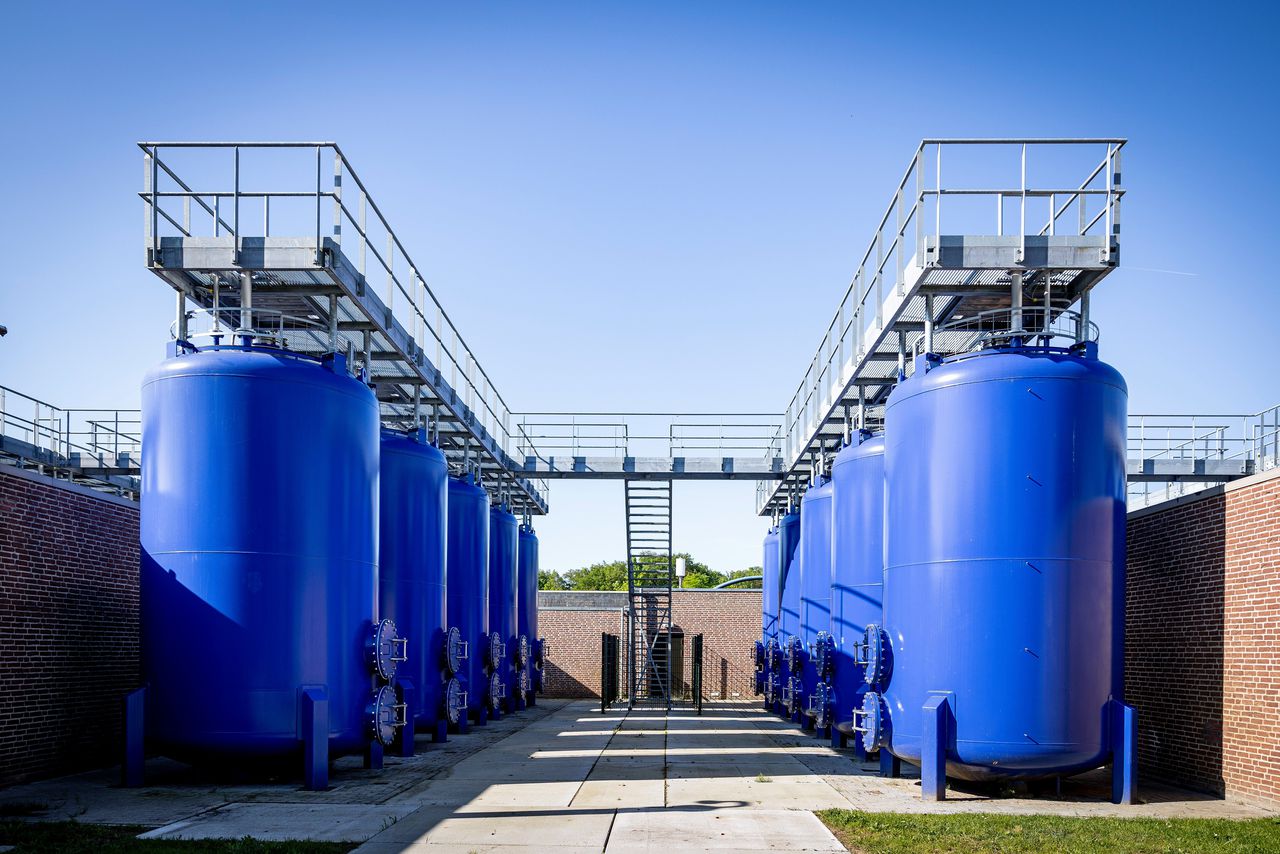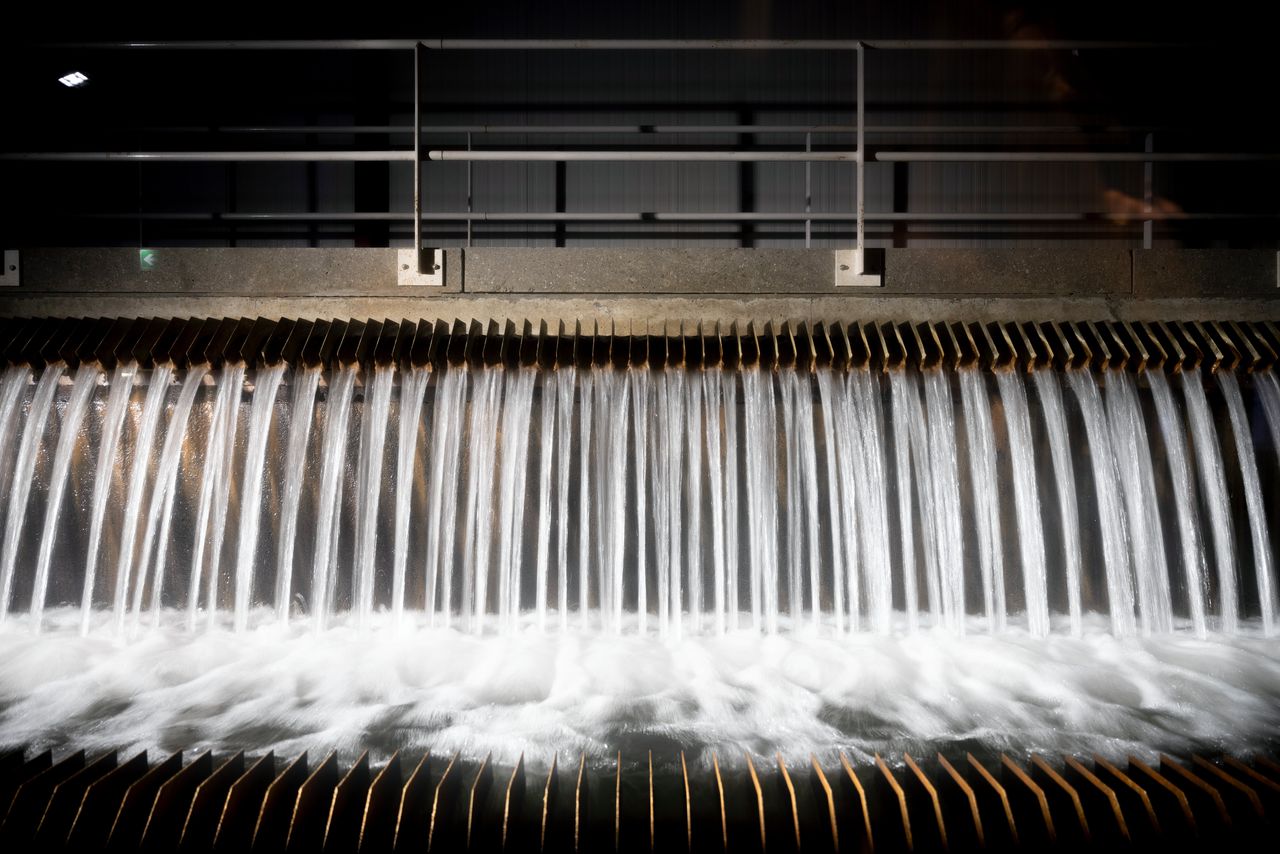More and more need for increasingly scarce drinking water: why is the Dutch not succeeded in handling water more efficiently?
:format(webp)/s3/static.nrc.nl/wp-content/uploads/2024/11/06155755/data124081969-5f68ab.jpg)
The Netherlands has too little drinking water. Several of the ten drinking water companies are covered with 10 percent of a 10 percent reserve and foreseen that they will no longer always be able to meet demand during a warm, dry summer. In the past three years, dozens of companies have been refused an application for drinking water. And the demand is increasing; Knowledge Institute RIVM expects that in five years more than one hundred million cubic meters of water will be more necessary than five years ago – that is slightly less than the consumption in a province like Overijssel.
One of the methods to combat the shortage is saving on drinking water. But the government is taking this insufficiently seriously, says the Court of Audit in the report Drinking water under pressure,, « That Tuesday appeared.
The current saving is not nearly enough. The cause is that the Dutch do not sufficiently see the severity of the drinking water shortage
Responsible Minister Barry Madlener (Infrastructure and Water Management, PVV) has set itself the goal that business users will use 20 percent less drinking water in ten years than in the period 2016-2019. And that households have reduced their consumption in ten years from an average of 120 liters per day to 100 liters. Whether these goals are achieved is ‘doubtful’, says the Court of Audit.
« Given the seriousness and urgency of the problems, we assess the policy results as worrying. » College member of the Court of Audit Barbara Joziasse: « There have been plans for drinking water savings for a long time, but the practice is unruly. The progress is slow. As far as we are concerned, much more pace is needed. It is about the drinking water on which millions of citizens and companies are dependent. Every drop counts. »
Read also
Pollution, scarcity, climate change: How long can water companies guarantee clean drinking water?
1Why is it not possible to have citizens saved drinking water?
Households consume almost three -quarters of the total drinking water. Most of the shower and rinsing of toilets. From the beginning of this century, consumption has fallen slightly, mainly due to more efficient household appliances. The last two years it has fallen a little further, presumably due to wet summers and high energy prices, which means that people shower for less. But the saving is by no means sufficient to reduce the consumption to 100 liters per day. The cause is that the Dutch are insufficiently permeated by the severity of the drinking water deficiency.
« The risk of a deficiency is estimated small. It is even a bit unbelievable, » says a study published last year To the ‘water consciousness’. The Dutch find the shortage of water for nature ‘more realistic’ than a shortage of drinking water.
Perhaps a campaign can help. Or a price stimulus: those who use more water pays more. Unfortunately, research shows That higher costs have a « very limited » effect on demand. The ‘price elasticity’ of the first necessity of life is virtually zero.

2Why is the demand for drinking water still increasing?
That has three causes. To begin with, climate change, which means that drought occurs more often, periods in which suddenly much more water is used. Another explanation: the growth of the economy. There are more companies and they have been consuming for a few years, after an initial decrease, more water. Why is unknown. Furthermore, the number of households and homes in the Netherlands has been increasing for years. The cabinet even wants to add 900,000 homes, all of which have to be supplied with water.
Incidentally, there is an opportunity, experts say, to make large savings in one fell swoop: make it mandatory to flush toilets with rain or household water in new homes.
But the Court of Audit is waiting, partly due to health effects. « Possibly a rain or household water system has adverse effects on public health. » Moreover, such a system is expensive. Regarding the obligation: this cabinet wants to accelerate housing due to my own rules. And if it is introduced, only in three years, when some of all new homes have already been built. Of the saving by such an obligation like this four years ago, namely 5.7 liters per person per day, only 2.6 liters are left at introduction in 2028.
Drinking water companies are also required by law to provide households. It is almost impossible that future residential areas will be without water, unless a disaster is taking place. However, the drinking water companies will have to sell no more often to companies.
Read also
Does the filtering of water in the dunes lead to pollution of the soil?
3Can water be saved in a different way?
Every Dutchman should use less water. The Court of Audit advises the government to « continue to work on increasing the feeling of urgency of drinking water scarcity among citizens and companies to ensure behavioral change. » The aforementioned investigation into water consciousness mentions shorter shower and do not allow cranes to run unnecessarily if ‘the most expected behaviors’ of citizens such as the government calls to use less water.
In times of drought, it is also expected that the Dutch will adhere to a call not to spray the garden during the day. Furthermore, companies should also use less drinking water. For example, the industry, including the chemical, uses the most tap water of drinking water quality.
4Is the drinking water deficiency also to combat differently?
In a response to the report, Minister Madlener states that despite all the threats, good steps are already being taken. The ministry is working, together with the drinking water companies and provinces, on a plan to produce more drinking water in order to meet growing demand.
Producing more drinking water, among other things by expanding the number of sources, is « at least as great importance, » said Madlener in his response, which was included in the report. The minister also wants to increase production by facilitating it to grant permits for expansions of water sources.

Read also
New and old water in the Piershil testing ground

:format(webp)/s3/static.nrc.nl/images/gn4/stripped/data131621162-d43777.jpg)
:format(webp)/s3/static.nrc.nl/taxonomy/8e0563e-Steketee%252C%2520Hans%25202019_700%2520%2528artikel%2529.png)
:format(webp)/s3/static.nrc.nl/wp-content/uploads/2025/05/11122755/web-1205CUL_eurovisie-zaal.jpg)
/s3/static.nrc.nl/images/gn4/data132194232-552757.jpg)
:format(webp)/s3/static.nrc.nl/wp-content/uploads/2024/07/05144251/data118082514-326ce2.jpg)




